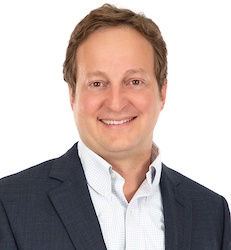It has been said that America was built on the Protestant work ethic. In recent years, writers have tried to define the Catholic work ethic. While it is good that Catholics are contributing to the discussion, many contributors frame the Catholic work ethic as teaching that work is merely a means to leisure and the beauty that is enjoyable in leisure. While these are good things, writers who dwell exclusively on them miss the opportunity to remind Catholics that holiness can be lived out in the workplace. God gave us talents to develop this world, and our time at work is one of the primary venues for doing that.
Yes, work does afford people leisure and can provide compensation that allows more time with family and friends, but that is not its purpose.
We are reminded of the Catholic Church’s affirmation of the purpose of work in several places. Perhaps none is more prominent than Gaudium et Spes, promulgated by Pope Paul VI, which reminds us that the mandate for man to “subject to himself the earth and all it contains, and to govern the world with justice and holiness … concerns the whole of everyday activity as well.” For, “while providing the substance of life for themselves and their families, men and women are performing their activities in a way which appropriately benefits society. They can justly consider that by their labor they are unfolding the Creator’s work, consulting the advantages of their brother men, and are contributing by their personal industry to the realization in history of the divine plan.”
After reading such a declaration, it is difficult to relegate something our Church teaches as “unfolding the Creator’s work” to the status of simply a means to leisure. It is so much more. It benefits both the workers and the communities they work in. In his encyclical Laborem Exercens, Pope St. John Paul II boldly tells us, “If one wishes to define more clearly the ethical meaning of work, it is this truth that one must particularly keep in mind. Work is a good thing for man – a good thing for his humanity – because through work man not only transforms nature, adapting it to his own needs, but he also achieves fulfilment as a human being and indeed, in a sense, becomes 'more a human being.'”
Many commentators say that people are looking for more meaning in their lives than they can find in work. But I would argue that the answer to that quest does not lie in sidelining and minimizing the purpose of our work life as a way of maximizing leisure time. Rather it involves achieving holiness every day in both our work and family life by recognizing the talents God gave us and constantly striving to employ them in ways that build our communities. Without this perspective, work becomes simply a quest for material excess.
It is up to us in business to build cultures in our organizations that strengthen workers and their families and create an awareness of how our work benefits and serves our customers, employees, vendors, and communities. For the thousands of us who have been given a calling in business, this core worldview is of the utmost importance as we “unfold the Creator’s work.”
(Photo credit: Rawpixel Ltd. This photo has been cropped. CC BY 2.0.)



